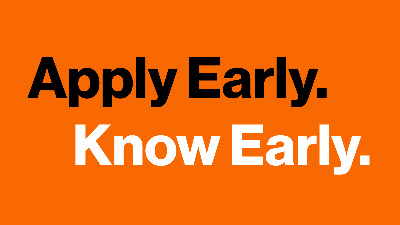Loans
Loans are a valuable resource to aid in paying for educational costs.
Loans allow you to postpone paying a portion of your educational costs until after you graduate or after you drop below half-time (six credits) enrollment. Repayment of federal student loans is traditionally scheduled over a ten-year period beginning six months after you leave school. Repayment options for Alternative Educational Loans may vary.
Three Types of Educational Loans
Federal Direct Student Loans
Federal student loans offered by the U.S. Department of Education to help eligible students cover the cost of higher education at an accredited institution.
- Students who are U.S. citizens and eligible non-citizens can apply
- FAFSA is required
Federal Direct PLUS Loans
Federal loans offered by the U.S. Department of Education to parents of dependent undergraduate students or to graduate/professional students that they can use to help pay for college.
- Parents can apply
- Graduate/professional students can apply
- Only U.S. citizens or eligible non-citizens can apply
- FAFSA is required
Alternative Educational Loans
Private loans offered by private lenders to provide funds to pay for educational expenses.
- All students and parents can apply
- Does not require the FAFSA
Beginner’s Guide to Borrowing Student Loans
- You will have to pay loans back over time.
- Your federal lender will keep a processing fee out of your loan funds. Alternative educational loan lenders may keep a processing fee.
For example, if you borrow $5,000 and your loan fee is 1%, the lender will keep $50 of your loan for a processing fee, and the remaining $4,950 will be disbursed to your school. When the loan pays out, you'll get a little less than what you borrowed. - Interest is the fee you pay lenders for letting you use their money. The longer it takes you to repay your loan, the more interest you will be charged.
- Stay enrolled at least half-time (six credits) to maintain "in school" status so you don't start repayment. Enrollment in a required undergraduate Co-op experience (part-time or full-time) will also allow you to maintain "in school" status and delay repayment.
- Loan payments typically begin six months after you stop attending school. This time is called a "grace period."
- If you are a first-time borrower, you will need to complete Entrance Counseling and a Master Promissory Note at studentaid.gov. In most cases, you will only need to complete these items once for Federal Direct Loans during your college career.
Loan Repayment
After you graduate, leave school, or drop below half-time enrollment, you will have a six-month grace period before you are required to begin loan repayment. During this period, you'll receive repayment information from your loan servicer, and you'll be notified of your first payment due date.












